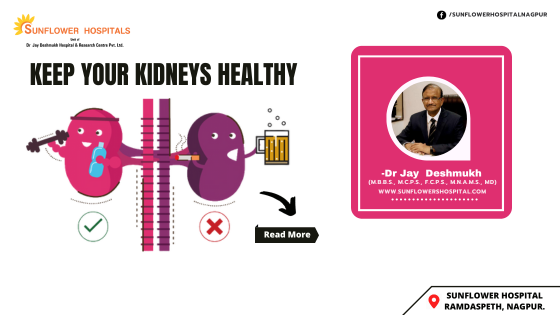What do the kidneys do?
Your kidneys are two red-dish bean-shaped organs located on either side of your spine in the middle of the back. Their main Job is to filter your blood. Each kidney contains millions of filters that process more than 50 liters of fluid each day.
What do these filters do?
When blood passes through your kidneys, the blood is filtered. Substances useful to the body like nutrients and water are retained. Extra water and harmful waists are routed to the bladder and passed away as urine.
Do your kidneys produce hormones?
The kidneys produce several hormones. In fact, the kidneys act like endocrine organs. These hormones help to control your blood pressure, make red blood cells, and activate vitamin D, which keeps your bones strong.
What happens when we get older?
We lose a little of our kidney function as we get older. We can survive with just one kidney if we donate the other kidney to a friend or family member.
What are the key points you need to know about your kidneys?
The most important is, what is your GFR or glomerular filtration rate? This is easily calculated by knowing your blood creatinine and weight. The next is knowing the amount of albumin excreted in urine. Estimation of your blood pressure, and blood glucose, is to be done periodically.
What needs to be done to keep your kidneys healthy?
Keep your blood pressure, blood glucose, and cholesterol levels under strict control. Do not smoke and keep your alcohol intake to a bare minimum. Be physically active and reduce disorders of kidney functions that are generally detected late. This is because symptoms occur quite late, only after the major part of the kidneys do not function appropriately. Annual assessment of kidney functions is suggested in healthy individuals. Minor variations should be addressed seriously to prevent chronic renal failure requiring dialysis and transplantation. Weight if you are overweight. Avoid painkillers, herbal medicines, and medications that have not been tested for their safety. Take medications as pre-scribed by your doctor. Choose food that is healthy. Avoid excessive consumption of salt and sugar. Get your urine examination, creatinine values in blood and blood pressure, and blood glucose levels for diabetes checked regularly. This should be done once a
year in healthy individuals.
Who gets kidney failure?
If blood pressure and diabetes are poorly controlled for a long period of time: kidney failure can ensure Poorly managed kidney; infections, many cysts in the kidneys, recurrent urinary tract infections multiple kidney stones are not attended to, some congenital kidney disease, CER thin autoimmune disease: like lupus and chronic exposure to certain medications including pail killers can predispose to kidney failure.
Why do so many individuals end up in dialysis or kidney transplant programs?
Unfortunately, many of these have not been treated in the early stages due to lad of awareness and discipline. As much as we have annual cardiac checks ups, so also annual kidney; checks ups are important. In the early stages of kidney disease, there may not be any symptoms. Only with advanced disease, one may; have symptoms.
What are the symptoms of kidney disease?
Headache, swelling on Elio and feet, high-grade fever and pain in loins, burning sensation in urination coloured urine, loss of appetite itching am anaemia can be symptoms: of kidney failure Remember many individuals do not have symptoms, and the first diagnosis can be made ONT by blood tests.


